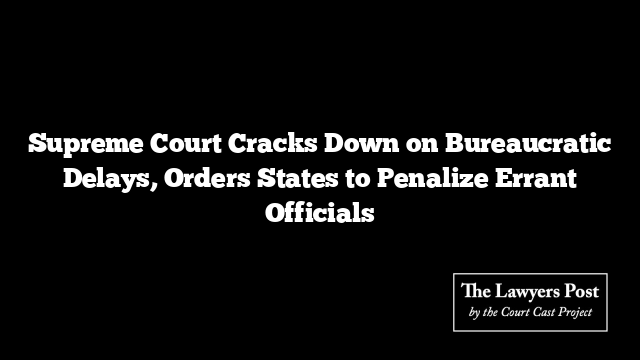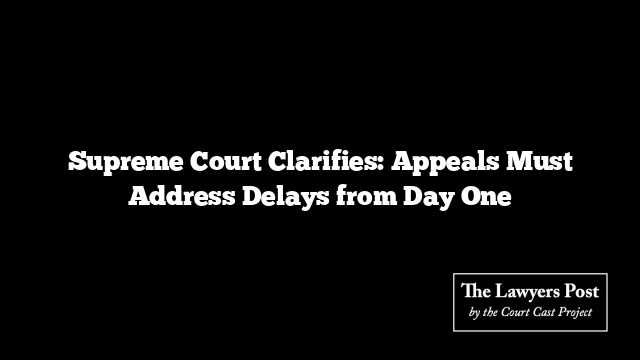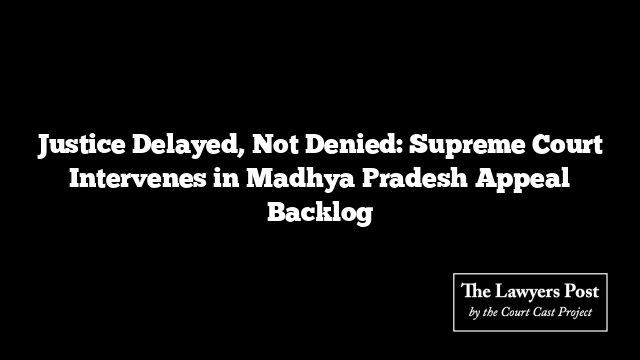Frustrated with government inefficiencies leading to significant financial losses, the Supreme Court has issued a decisive directive to all States: hold officials accountable for delays in filing legal appeals and impose penalties for negligence.
The Court’s rebuke stems from a growing pattern of delayed government appeals being dismissed due to procedural negligence. Highlighting the issue, a bench comprising Justice JB Pardiwala and Justice R Mahadevan underscored the need for a systematic overhaul in litigation management. The directive calls for fixing responsibility on officers who fail to act promptly, causing substantial harm to the public exchequer.
This stern message came during the dismissal of a Special Leave Petition by the State of Madhya Pradesh, which had sought to excuse an extraordinary delay of nearly five years (1,788 days) in filing a second appeal concerning a land dispute. The trial court had ruled against the government’s claim, granting title to a private individual. However, due to a cascade of bureaucratic delays—from late communication by the government advocate to prolonged approvals by various departments—the appeal languished for years.
The Court unequivocally rejected Madhya Pradesh’s justification for the delay, aligning with the High Court’s stance that such delays cannot be condoned without credible reasons. Referencing a recent judgment, it reiterated that leniency in granting extensions should not become a default practice.
In a scathing critique of the state’s inefficiency, the Court emphasized:
“This case exemplifies the repercussions of a callous approach by officials, leading to the loss of valuable government assets. The machinery for managing legal affairs must be restructured, and officers responsible for such lapses should face penalties commensurate with the financial damage caused.”
The directive applies universally to all States, urging them to adopt rigorous mechanisms to prevent similar lapses. Additionally, the bench imposed a cost of ₹1 lakh on the State of Madhya Pradesh, sending a clear warning against frivolous or ill-prepared appeals.
The judgment serves as a landmark moment, signaling that the Supreme Court will no longer tolerate inefficiency and misuse of judicial resources, urging governments to act with accountability and diligence.





